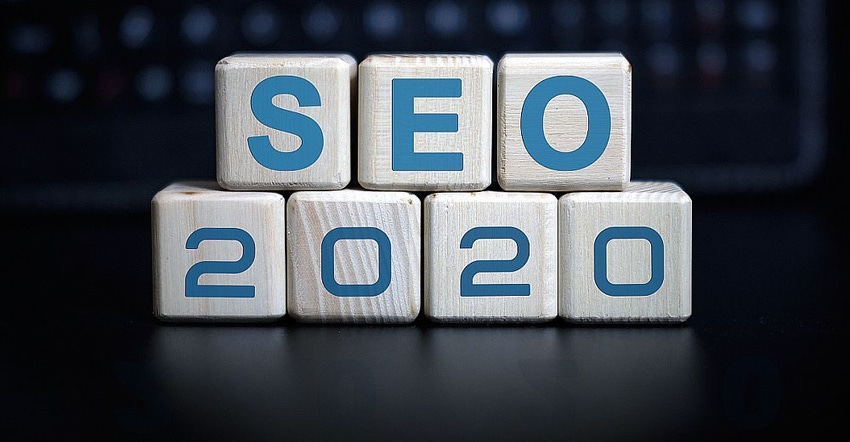When Google changes is ranking parameters, marketers must adjust. Read how SEO strategies have changed for self-storage and other businesses as the search engine giant strives to improve user experience.

Over the last two decades, search engine optimization (SEO) has seen four major shifts. If your website is focused on content or keywords, then you’re optimizing for SEO like it’s 2001. Today, to gain long-term visibility for your business, it’s important to align with Google’s efforts to improve user experience. Let’s see how we got here and how self-storage marketers need to evolve.
In the Beginning: Content and Keywords
In the early 2000s, Google was a young company, with its search engine the main focal point. To continue generating revenue through its search page and pay-per-click ads, it needed to focus on providing users the best possible experience through organic links. This was important because Google was in the prime of its rivalry with Yahoo and MSN Search (now Bing).
The only way for Google to understand business websites was to base its search rankings on content, or keywords, on each. By looking at these, it was able to determine what a website offered and match it to a user’s search term, showing a list of correlating results.
However, businesses and marketers figured out how to hack the system. If you stuffed a lot of keywords on your website, you could gain in the rankings and get visibility for many different search terms, even if your website was actually irrelevant for a particular keyword. Ultimately, this provided the searcher with a poor experience and irrelevant results. Google knew it had to adjust.
Backlinks Build Trust
Once keyword stacking was exposed, Google needed a new way to determine search rankings. A large portion of its revenue came from its AdWords platform, so it was important to ensure its search engine continued to be a trusted source of information. That’s when Google figured out that if websites were endorsing other websites, it was a signal of trustworthiness.
For example, if website A links to website B, and website A is a trusted source, then website B is a trusted source by association. Google believed this was a better practice because search results would be generated off trusted websites rather than keyword manipulation.
Though the giant felt good about this new practice, it didn’t stop businesses and marketers from ruining it. Some began to develop tactics like link farming and black-hat tricks that used backlinks to improve rankings. Google once again had to ask: How could it provide the best user experience, one free from manipulation?
Enter RankBrain
In response, Google engineers built RankBrain, an artificial-intelligence system that focuses on which websites and businesses provide the best user experience. It operates off of “user signals.” The more positive an experience a user has with your website, the more often your website will show in rankings.
If a user visits your website and doesn’t find what he’s looking for (high prices, no specials, no online reservations, bad location, or no way to contact the storage facility), it could prompt him to leave the website and visit a competitor’s. This would be considered a negative user signal for your website. The system is so advanced it can’t be manipulated. The only way for businesses to achieve higher rankings is to provide a great online experience.
The Next Phase
Google’s philosophy is to make its own products irrelevant rather than wait for a competitor to shake up the market. Since launching RankBrain, it has added layers of complexity. It now looks at the full journey a user has with a business, online and off. It’s starting to track and report store visits, which shows how many people are interacting with your business online and then showing up at your physical facility.
This is an indication that Google is looking at the full customer journey to determine how self-storage operators and other businesses are satisfying users. By doing so, the search engine is able to recommend businesses based on their full customer experience.
A New Era of SEO
Focusing on keywords, content or backlinks is no longer the way to have the biggest impact. Though these all still play smaller factors in Google’s search rankings, they’re impact is minimized. There’s also no manipulating the new RankBrain system. Marketers and businesses that try would have to constantly change tactics whenever there’s an algorithm shift.
Frankly, the best way to play in this new era is to align with Google’s goal of user satisfaction and offer the best user options at any given time. Self-storage operators should consider the following when trying to create the best experience for website visitors and customers:
Are your prices competitive within a three- to five-mile radius of your facility?
Do you provide online unit reservations? If so, what friction points (administrative fees, short reservation window, etc.) are present as customers move through the process?
Are your special offers clear and easy to understand?
Is your website user-friendly, including an easy-to-find phone number?
Are you generating and responding to online reviews?
Is your operation smooth? Do your website and facility manager help shoppers choose a unit and move into it as seamlessly as possible?
The biggest takeaway when considering SEO evolution is to align with Google’s goal of satisfying users. By being the best option, your digital-marketing efforts will win and put you in position to survive any algorithm shifts.
Joe Evans is director of marketing for Automatit Inc., a Google Certified Premier Partner that manages more than 500 websites and has been listed as one of the fastest growing companies in America on the Inc. 5000 for the last several years. The company has served more than 2,000 self-storage facilities with various digital-marketing services. For more information, call 520.293.4608; e-mail [email protected]; visit https://selfstoragemarketing.com
About the Author(s)
You May Also Like





